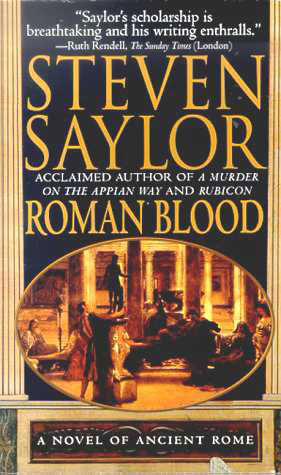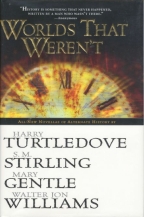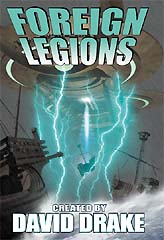ROMAN BLOOD, BY STEVEN SAYLOR
CATEGORY: HISTORICAL MYSTERY

In general, I like historical mysteries as a break from my steady diet of hard-boiled and noir type detective novels. I especially like mysteries set in ancient Rome. There's something so comfortingly familiar with the Roman setting, yet so distant. When a fictional Roman laments how dangerous walking in the streets at night is these days, I can only smile and think about walking around in Anacostia. Some things never change.
Steven Saylor's Gordianus the Finder is a central figure in a series of novels set in Ancient Rome, during a pivotal time in history-- The Marius-Sulla Civil War, the Spartacus Revolt, and the Founding of the Empire by Julius Caesar. It's a great background for murder-- one which SHOULD emphasize the historical events going on around the murder.
Fortunately, Saylor weaves in 'current' events rather deftly in Roman Blood (note bene: it's my first reading of one of his Gordianus novels. I don't have anything to compare it to). Gordianus, a freeman occupied as a "finder" or detective type, exercises the arts of deduction far in advance of Sherlock Holmes' day. In Roman Blood, Gordianus is called upon (by Cicero, no less) to solve a notorius murder (a paricide, which is evidently the worst crime in the Roman pantheon). The hook is that Gordianus must accomplish this feat in eight days-- all of this with the last days of Sulla transpiring in the background. In terms of historical detail, it's a great book. In terms of characterization, I was not that impressed. Gordianus seems a little flat to me-- he has none of the foibles and juicy background that I've seen in Falco (from Lindsay Davis' similar Roman era mysteries set in the time of Vespasian, of course. I'm sorry, the comparison has to be made).
Still, the plot had many fine twists and turns, and proceeded in workmanlike fashion. I enjoyed the bits about Rome and culture-- apparently Saylor is something of a scholar.
Summary: I'll read more from Saylor, though I don't think I'll invest in hardcovers. Not bad, but not great either.
Posted by mrnizz
at 11:37 AM EDT
 A collection of four novellas by Harry Turtledove, S. M. Stirling, Mary Gentle, and Walter Jon Williams. The recurring theme is the classic alternative history story.
Lately, I've been avoiding Turtledove like the plague, but he really returns to his strengths in his novella THE DAIMON, which is a "what-if" story set in the time period of the Pelopenessian War. The two lead characters are Socraters and Alicbediades, the same lead in TIDES OF WAR by Steven Pressfield. This is the best novella Turtledove has written in a long while.
I also recommend Mary Gentle's alt-history version of the Fall of Constantinople (several years later) entitled THE LOGISTICS OF CARTHAGE. This is a story in the same universe as her earlier ASH: A SECRET HISTORY. Probably the best written novella of the bunch.
I had given up on S.M. Stirling by the end of the first Draka book (though did try him again in that series he did with Drake sometime later), but found SHIKARI IN GALVESTON to be emminently readable, if not exactly the most skillful plot I've ever read. A good gap-filler, replete with the classic SM Stirling sex scenes.
The oddest story might be Williams' THE LAST RIDE OF GERMAN FREDDIE, which places Friedrich Nietzsche at the Gunfight at the O.K. Corral. Funny, but a trifle forced and artificial. Not as big of a fluff piece as SHIKARI is, but nothing heavy either.
As in most collections, you take the bad with the good. The Turtledove and the Gentle piece make this one worth the price of admissions!
Walt
A collection of four novellas by Harry Turtledove, S. M. Stirling, Mary Gentle, and Walter Jon Williams. The recurring theme is the classic alternative history story.
Lately, I've been avoiding Turtledove like the plague, but he really returns to his strengths in his novella THE DAIMON, which is a "what-if" story set in the time period of the Pelopenessian War. The two lead characters are Socraters and Alicbediades, the same lead in TIDES OF WAR by Steven Pressfield. This is the best novella Turtledove has written in a long while.
I also recommend Mary Gentle's alt-history version of the Fall of Constantinople (several years later) entitled THE LOGISTICS OF CARTHAGE. This is a story in the same universe as her earlier ASH: A SECRET HISTORY. Probably the best written novella of the bunch.
I had given up on S.M. Stirling by the end of the first Draka book (though did try him again in that series he did with Drake sometime later), but found SHIKARI IN GALVESTON to be emminently readable, if not exactly the most skillful plot I've ever read. A good gap-filler, replete with the classic SM Stirling sex scenes.
The oddest story might be Williams' THE LAST RIDE OF GERMAN FREDDIE, which places Friedrich Nietzsche at the Gunfight at the O.K. Corral. Funny, but a trifle forced and artificial. Not as big of a fluff piece as SHIKARI is, but nothing heavy either.
As in most collections, you take the bad with the good. The Turtledove and the Gentle piece make this one worth the price of admissions!
Walt




